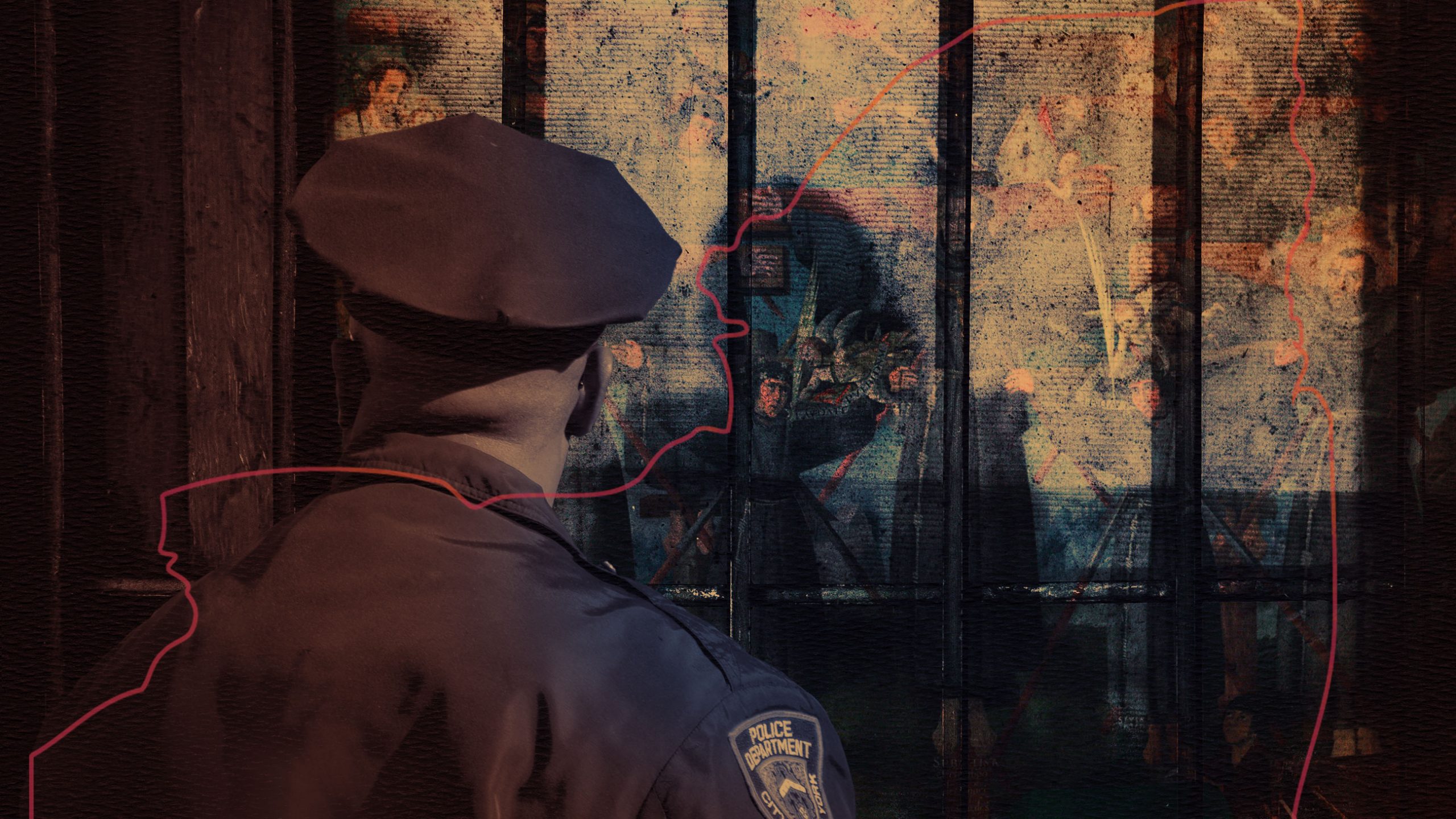Police must increasingly step in after civil society has failed.
De Blasio’s New York

A chronicle of progressive mismanagement and rapid decline.
What follows is the foreword to Seth Barron’s new book, The Last Days of New York.
It may sometimes seem that cities, like civilizations, are always on the brink of collapse, threatened by unmanageable complexity, internal strife, and serial misgovernance. Lewis Mumford, in The Culture of Cities (1938), foresaw imminent urban disintegration and chaos, an outlook best captured by one of his chapters titled, “A Brief Outline of Hell.” Roughly 20 years later, in The Death and Life of Great American Cities, Jane Jacobs warned against the strangling effects of the urban planning that was then so fashionable and doing so much harm to small-scale neighborhood life. Only four years ago, Richard Florida, normally a civic booster of Babbitt-like enthusiasm, prophesied doom in The New Urban Crisis.
Little wonder, then, that episodes of civic renaissance and vitality are so striking: those fortunate times when things go right. Seth Barron’s The Last Days of New York—a propulsive chronicle of failed policy and bad leadership—shows that things did once go right in New York City, and not so long ago. Under Rudolph Giuliani in the 1990s and Michael Bloomberg in the three mayoral terms that followed, the city found its way again after the dangerous decline of the 1970s and 1980s.
This feat was accomplished by reducing crime, restoring public order, reconquering public spaces, and reanimating neighborhoods. Barron demonstrates just how easily such gains can be lost. He focuses in particular on the unwinding of the quality-of-life policing that made New York newly livable in the late 1990s and early 2000s, luring investors to a city that had faced bankruptcy within living memory. But behind that unwinding were leaders whose rhetoric was poisonous and whose decisions were destructive.
Here pride of place goes to Bill de Blasio, a man whose mayoralty (thankfully now in its last year) is at the center of Barron’s narrative. De Blasio’s eagerness to appease public-sector unions, support radical protesters, recite woke cliches (not least the ones decrying “racism”), squander vast sums of money on feckless programs, and, most of all, soften or eliminate police procedures essential to fighting crime—all come under Barron’s closely detailed scrutiny. And the city itself? More and more, Barron suggests, it is a place of squalor and disorder, with the homeless parked seemingly everywhere and violence on the rise. “After decades of declining crime,” he writes, “…New York was, seemingly overnight, scary again.” Meanwhile, the city’s businesses, already under pressure from high taxes and the mayor’s “progressive” reforms (paid sick leave, a higher minimum wage), face endless ordeal and possible extinction—a condition that the recent pandemic has only intensified.
What is to be done? Barron, to his credit, offers no soaring visions of a future city that, with just the right mix of policies, will takes its place with Athens and Rome in the annals of municipal glory. But he can’t help feeling that New York can do better—indeed, that it has done better and has ruinously lost its way. He describes a recent encounter he himself had with a seriously disturbed man in Washington Square Park—a man (it turned out) with a long criminal history who was, at the time, wielding a crossbow and a machete menacingly. The police did come and arrest him, but he was released on his own recognizance right away.
Such incidents, all too familiar to New Yorkers these days, may not amount to “anarchy,” a word that Mayor de Blasio vehemently rejects when it is used to describe his city. “But,” Barron adds, “it isn’t the New York City that Bill de Blasio inherited, either.”
The American Mind presents a range of perspectives. Views are writers’ own and do not necessarily represent those of The Claremont Institute.
The American Mind is a publication of the Claremont Institute, a non-profit 501(c)(3) organization, dedicated to restoring the principles of the American Founding to their rightful, preeminent authority in our national life. Interested in supporting our work? Gifts to the Claremont Institute are tax-deductible.
Cynical politicians endanger their own citizens for the sake of mob appeasement.


